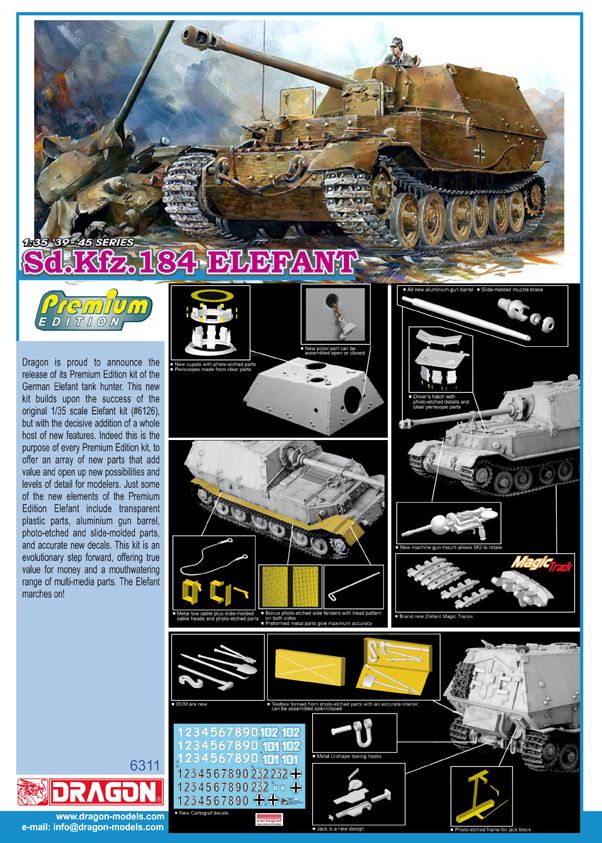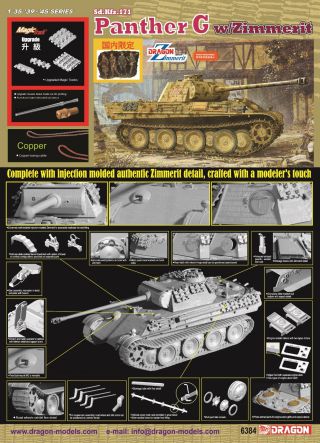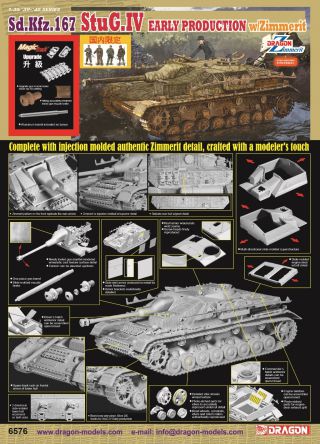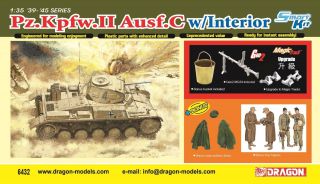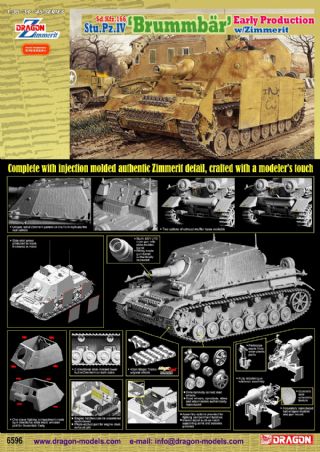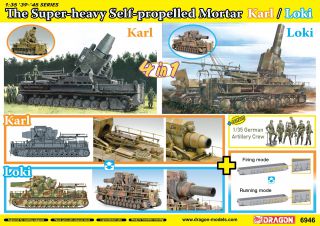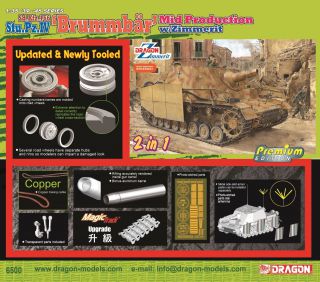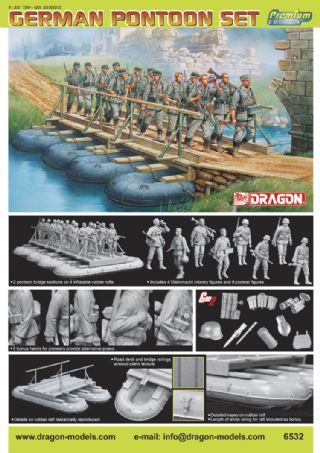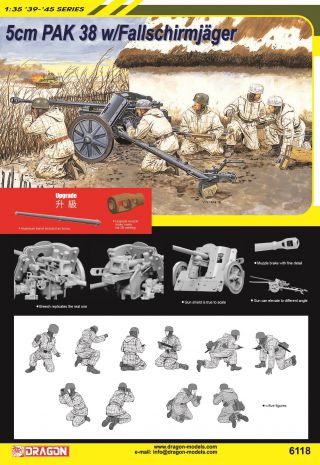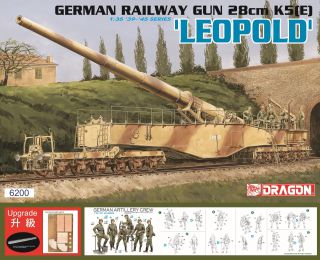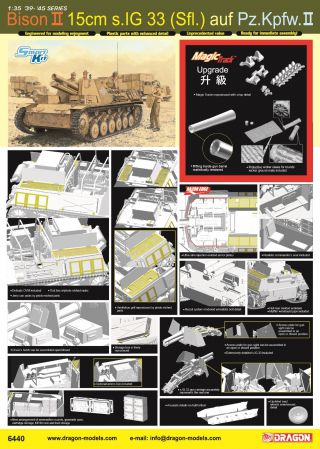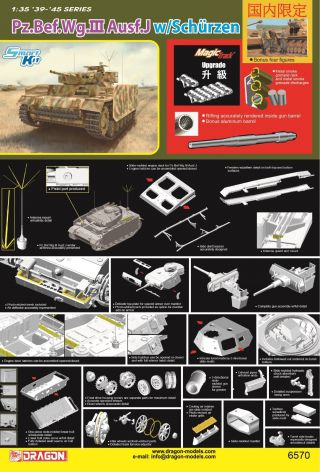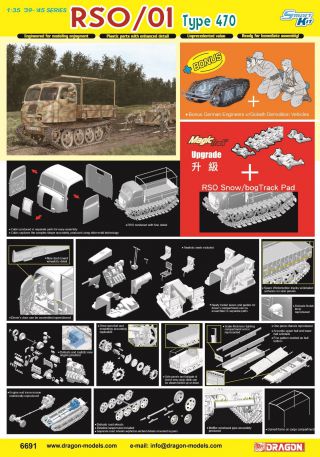HOME → Dragon Plastic Model Kits → 1/35 WWII Military → 6311
Barcode: 0 89195 86311 9
Packaging: 20 pieces per master carton
Box Size: 9.6"x15"x3.1"
1/35 Elefant, Sd. Kfz 184 - Premium Edition Kit
The first in our new Premium Edition series! This series offers an array of new parts that add value, detail and new possibilities for modelers. See the complete description of this new series below.
This new Elefant kit builds upon the success of the original 1/35 scale Elefant kit (#6126), but adds many new features such as transparent plastic parts, aluminum gun barrel, photo-etched and slide-molded parts, and accurate new decals.
This kit is giant step forward, offering true value for the money and a mouthwatering range of multi-media parts.
Main Features:
- new cupola with photo-etched parts
- periscopes made from clear parts
- brand new Elefant Magic Tracks
- new pistol port can be assembled open or closed
- all new aluminum gun barrel
- slide-molded muzzle brake
- new machine gun mount allows MG to rotate
- OVM are new
- toolbox formed from photo-etched parts with an accurate interior; can be assembled
open/closed
- metal tow cable plus slide-molded cable heads
- bonus photo-etched side fenders give maximum accuracy
- photo-etched cable stowage brackets
- photo-etched tow hooks
- exciting box art illustration
- new Cartograf decals
About this new series:
What are Dragon Premium Edition Kits?
Premium Edition kits strike an optimum balance between technology and value
for the money, often with the reuse and revival of existing Dragon Models. New
technology is added to create new molds and more accurate parts, and these elements
are combined to produce a greatly improved kit. Premium Edition kits are complete
in every sense and offer modellers a chance to extend their families of model
vehicles.
About the Elefant:
The Elefant (Sd.Kfz. 184) was an anti-tank vehicle sometimes called the Ferdinand,
after its designer Mr. Ferdinand Porsche.
Ninety Elefanten were manufactured in just a few months during mid-1943. It was first deployed during the Battle of Kursk and, though destroying 320 Russian tanks, performed very poorly in other respects: many units broke down and they proved dangerously vulnerable to infantry, lacking a machine gun. They went on to serve in Italy in 1944 and the final units were involved in the Battle of Berlin.

